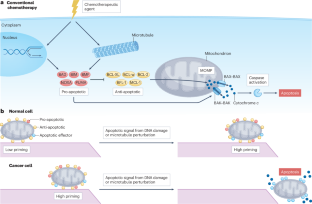Conventional chemotherapy: millions of cures, unresolved therapeutic index
IF 66.8
1区 医学
Q1 ONCOLOGY
引用次数: 0
Abstract
In recent decades, millions of patients with cancer have been cured by chemotherapy alone. By ‘cure’, we mean that patients with cancers that would be fatal if left untreated receive a time-limited course of chemotherapy and their cancer disappears, never to return. In an era when hundreds of thousands of cancer genomes have been sequenced, a remarkable fact persists: in most patients who have been cured, we still do not fully understand the mechanisms underlying the therapeutic index by which the tumour cells are killed, but normal cells are somehow spared. In contrast, in more recent years, patients with cancer have benefited from targeted therapies that usually do not cure but whose mechanisms of therapeutic index are, at least superficially, understood. In this Perspective, we will explore the various and sometimes contradictory models that have attempted to explain why chemotherapy can cure some patients with cancer, and what gaps in our understanding of the therapeutic index of chemotherapy remain to be filled. We will summarize principles which have benefited curative conventional chemotherapy regimens in the past, principles which might be deployed in constructing combinations that include modern targeted therapies. Conventional chemotherapy has successfully cured millions of patients with cancer, yet the mechanisms of action for this remain unclear. In this Perspective, Letai and de The assess the existing mechanisms proposed for the success of chemotherapy, identify gaps in our understanding and suggest principles for improving the utility of conventional chemotherapy to enhance treatment efficacy.


传统化疗:治愈了数百万人,治疗指数仍未确定
近几十年来,数百万癌症患者仅靠化疗就治愈了。所谓“治愈”,我们指的是那些如果不及时治疗就会致命的癌症患者接受一个有时间限制的化疗疗程,他们的癌症就会消失,再也不会复发。在一个成千上万的癌症基因组被测序的时代,一个值得注意的事实仍然存在:在大多数已经治愈的患者中,我们仍然不能完全理解杀死肿瘤细胞的治疗指数背后的机制,但正常细胞却以某种方式幸免。相比之下,近年来,癌症患者受益于靶向治疗,这些治疗通常不能治愈,但其治疗指数的机制至少在表面上是被理解的。在这个视角中,我们将探讨各种各样的,有时是相互矛盾的模型,这些模型试图解释为什么化疗可以治愈一些癌症患者,以及我们对化疗治疗指标的理解仍有哪些空白有待填补。我们将总结过去使治疗性常规化疗方案受益的原则,这些原则可能用于构建包括现代靶向治疗的组合。
本文章由计算机程序翻译,如有差异,请以英文原文为准。
求助全文
约1分钟内获得全文
求助全文
来源期刊

Nature Reviews Cancer
医学-肿瘤学
CiteScore
111.90
自引率
0.40%
发文量
97
审稿时长
6-12 weeks
期刊介绍:
Nature Reviews Cancer, a part of the Nature Reviews portfolio of journals, aims to be the premier source of reviews and commentaries for the scientific communities it serves. The correct abbreviation for abstracting and indexing purposes is Nat. Rev. Cancer. The international standard serial numbers (ISSN) for Nature Reviews Cancer are 1474-175X (print) and 1474-1768 (online). Unlike other journals, Nature Reviews Cancer does not have an external editorial board. Instead, all editorial decisions are made by a team of full-time professional editors who are PhD-level scientists. The journal publishes Research Highlights, Comments, Reviews, and Perspectives relevant to cancer researchers, ensuring that the articles reach the widest possible audience due to their broad scope.
 求助内容:
求助内容: 应助结果提醒方式:
应助结果提醒方式:


